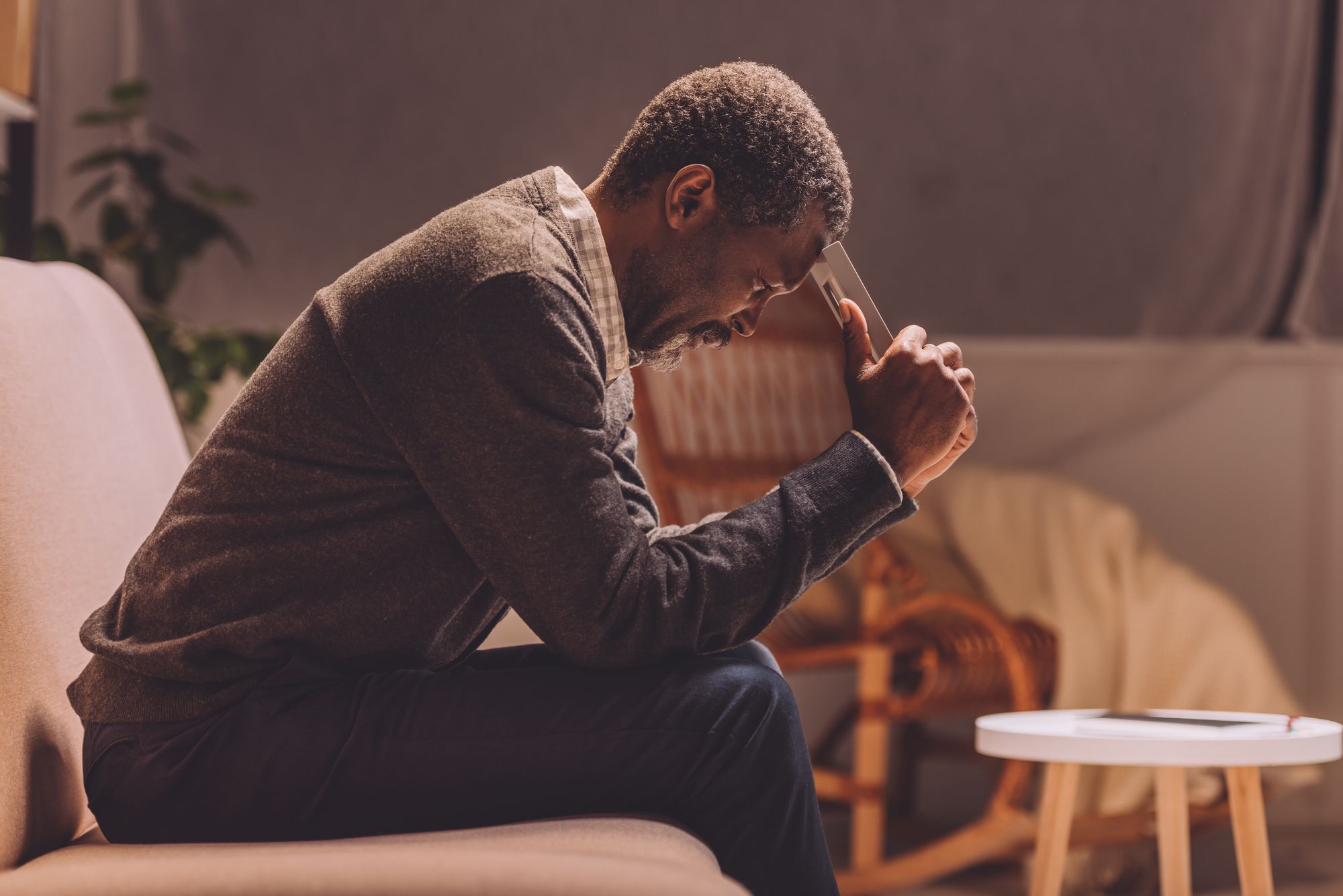
We're wired to be social. Have you become unsociable? You're not alone.
This coming Monday, January 17th, I turn 69. That in fact is the completion of my sixth decade, and I step into my seventies. I didn't sign up to be alone at this age. Most of us, as kids, likely thought we'd be married, with grand kids, or whatever. I never thought much about it when I was young other than I knew I wouldn't have kids.
I didn't expect to spend most of my life alone. But I did. Today we are increasingly a nation of singles, while most institutions still try to force us to be married or partnered based on a decades-old model of life in the US (and many Western nations).
Getting out of loneliness begins with being interesting ourselves, which helps us see others as interesting, and finding life's funny, especially in ourselves and in the world around us. It also involves some mature perspectives around expectations. But first, some context.
The Takeaway recently published a podcast on being lonely, which for my part has become a great deal more personal. Their article:

From this piece:
According to the Bureau of Labor Statistics:
the number of single people outnumber married people: More than half of the adult population in the U.S. is single.
About 50.2 percent or 124.6 million American adults are single—in 1950, that number sat around 22 percent.
Our laws, institutions, and assumptions are all built around being married or partnered. Not only is that grossly outmoded, it causes any number of legally-questionable impositions on people who do not have family. But this isn't that article, albeit you may well be, as many of us are, inconvenienced by such assumptions and policies.
This is about being lonely.
Let's discuss this. First, what does it mean to feel loneliness?
This Very Well Mind article does a nice job of clarifying:
/hispanic-teenaged-girl-sitting-alone-at-prom-81714567-597282a0d963ac001025bbee.jpg)
From the article:
While common definitions of loneliness describe it as a state of solitude or being alone, loneliness is actually a state of mind. Loneliness causes people to feel empty, alone, and unwanted. People who are lonely often crave human contact, but their state of mind makes it more difficult to form connections with other people.
Researchers suggest that loneliness is associated with social isolation, poor social skills, introversion, and depression.
Loneliness, according to many experts, is not necessarily about being alone. Instead, if you feel alone and isolated, then that is how loneliness plays into your state of mind. (author bolded)
The Very Well Mind article also points out the serious health effects for those who truly are lonely rather than simply choosing solitude:
Health Risks Associated With Loneliness
Loneliness has a wide range of negative effects on both physical and mental health,4 including:
- Alcohol and drug misuse
- Altered brain function
- Alzheimer's disease progression
- Antisocial behavior
- Cardiovascular disease and stroke
- Decreased memory and learning
- Depression and suicide
- Increased stress levels
- Poor decision-making
Most everyone I know has felt lonely at times, both partnered and solo. With quarantine and lockdown, those feelings might well be exacerbated. As I age into my 70s starting tomorrow, my silvering sisters and brothers can be subject to feelings of loneliness as spouses pass away or as the single lifestyle we chose ends up leaving us a little....bereft.
The more time we spend alone and in pain, the worse it gets. Our head tells us lies about how nobody likes us, and the words and thoughts feed on themselves, making it even harder to get out the door and risk a new connection.
People dealing with eating disorders, and I did for four decades, battle with terrible feelings of worthlessness and isolation. Similar psychological problems can make us feel terribly unwanted and unworthy. Childhood trauma can also lead us to carry unrealistic expectations in our relationships, which torpedo them before they start.
Since I moved from Colorado, where I spent nearly fifty years, I gave up the comfort of well-known people and places right about the time that all social activities ground to a halt.

I can't speak for anyone else, but the lovely house I bought here in Oregon can feel a bit echo-y at times. Nobody comes over without a tool box, and those poor sots can be subjected to my Chatty Cathy personality. They didn't sign up for that.
That's an indication I need to get out, Covid or no Covid. Here's what I did and how I make friends, for loneliness for me is a state about which I can do a great deal. So can you.
First, a little background. I've taught networking skills for many years, which makes some of this a lot easier. However I began with a severe case of social anxiety, which crippled my ability to connect. The Army made me a journalist, so I had to talk to people. There was no better gift.
The first key to connecting is being interesting and interested. People who educate themselves, and please note I didn't say have multiple degrees, are interesting. Curious folks explore: places, things, ideas. They read lots of different kinds of things from newspapers to online articles to books of all kinds. They aren't singularly-focused.
The more you explore, the more interesting you are. This does several things for you. Not only does it make your brain more elastic, you have a far broader range of topics to discuss with others. The wider your reference points, the more you can talk to anyone about anything from metal working to glassblowing, legislative work or spelunking. You don't have to do those things.
However, if you read an article about something that is foreign to you, not only does your brain benefit, but your world just opened up new doors.
The beauty of being a generalist is that your life can touch thousands of topics. Specialists can be riveting, but if that's all they talk about, the shine gets dull after a while unless you're equally enamored of the topic.
Medium commenter Liz Gadi wrote me the other day that she was delighted to find out that I was a very serious sports fan when I wrote a eulogy for John Madden. Truth, most of us are far more varied and interesting than we realize, and often fail to give ourselves credit for it.
A curious mind makes for a fascinating person. When we are singularly focused, such as on politics or a big topic like abortion rights or racism, that can make us a one-trick pony. Ponies are cute but they can also get both boring and irritating after a while. Living in an echo chamber, which too many people are doing right now, makes for very dull people.
The world is FULL of dull people. Ask anyone who has survived Match.com, and got stuck with a woman who could only talk about food or her weight, or a man who couldn't talk about anything other than to hint about sex.
Really? Get a life.
Then, get off line, get off social media, for heaven's sake. It isn't just that it's a deadly time suck for life you can't get back. It also sucks the intelligence right out of your brain pan. When I wait in line, I have books on Kindle. I'm not reading Facebook or Instagram. I'm learning. Or else I am happily bored, which is extremely good for the brain.
Or, I strike up a conversation with whomever is closest. This being the blue part of Oregon, that's six feet away. It's not all that hard. I make an observation- a funny one- about something around us. Almost every time the other person cracks up and a lively conversation ensues.
Dull people have no sense of humor. Dull people are angry all the time, resentful, bitter, self-focused, I could go on. Betcha know a few. If one of them is looking back at you in the morning mirror, that might be a hint. If you're feeling like a blunt instrument, you may well be one.
That, however, is easily fixed. But you and I have to work at it.
Finding the funny in life's tragedies is a huge skill. I saw a Billy Crystal special where, as a descendant of Russian immigrants, Crystal was doing standup in Moscow. What he did was brilliant. First, he opened with a monologue in perfect Russian, which brought everyone to their feet.
Then he launched into his routine with a riff about bread lines. People were laughing so hard, they were in tears.
Trick? He related to his audience on their terms. Then he took a common, daily annoyance and shredded it, which made the irritation hilarious. That's genius. You and I could do with a lot more of that, but it starts with us. Learning how to see the funny around us, and it's everywhere, without causing hurt (like owning the Libs or mocking the disabled or whatever vicious shit people are carrying around) is one of THE best ways to create comfort, safety, and the beginning of a connection.
So to recap: First, be interesting. Read. Be curious about people. Have something to talk about other than yourself all the time. Engage in the world at large. Expand your horizons and push your boundaries. Even better, seek out people very, very different from you. Spend time with those folks and learn from them. I do this largely through international travel. Then when I am home I can make friends with people from all over the world, because in so many cases I have been to or near their country of birth.
Second, be funny. Have a light heart, which means a bright heart. Humor, the gentle kind, especially self-effacing humor, makes us approachable. This isn't the Don Rickles Roast, or the Trump Trashing style of humor. It's kind, gentle and approachable. If you take life too seriously, you are NO FUN to be around.
And while all of us have crap in our buckets (with all due respect, in mine, I have incest, a gang rape and multiple rapes) the point is that we can use it as fertilizer or wallow in it until we stink.
The greatest comedians like Robin Williams had terrible addiction problems. Williams' brilliance was his ability to turn that tragedy into comedy. That is mastery. Folks are drawn to people who are brave and mature enough to find the humor in the middle of life's worst. We are in the middle of a fair bit of that right now. Those who can find the humor are oases in the storm.
As a newcomer to Oregon, I am now taking Hump Days every Wednesday. I toss a thermos of hot coffee into the car and wander. I visit art galleries and tiny rock shops and talk to people walking their dogs on the beach. I've made friends, too, even folks whose politics are poles apart from mine. One Trump supporter, a female artist, and I are both military veterans. I chose to stick with what connected us, and that worked perfectly well. She has no idea how I vote. Nor is it important. Our ability to connect is more important.

Dr. Rosenna Bakari, in her most recent book The Healing Journey Relationships and Wellness Guide, writes:
Relationships are not possessions, they are significant human experiences. When we learn to trust the experiences that we create, trusting people becomes less problematic.
When Dr. Bakari and I spoke this morning about this article, she pointed out that we have to remember not to seek out that ONE friend. She said, "Find ten. And find odd-couple friendships, too, which allow you to experience all kinds of people."
Hoping that one friend can meet all our conversational and relationship needs is similar to expecting some poor sot to be our be-all, end-all, our everything in a pairing, when the truth is that we really do need a rich variety of people in our lives.
My best friend Melissa is gay, she is partnered. However her partner does not provide her with the kind of conversation and friendship that I can, and our connection has strengthened even as she has gone more deeply into her love connection. We have no right to burden one person with all our love or friendship demands. Melissa has a huge circle of friends, mine is growing.
That allows us to remain balanced, and have lots to give and share with all those in our circles.
Got loneliness? Start with developing yourself. Not only will you enjoy the process, you will build your confidence.
As for humor, I listen to comedians all the time. Doing that has taught me how to see the world through different eyes, seeking the absurd. It's everywhere. And when I share it, either directed at myself or funnin' about the world at large, I make new friends.



Comments powered by Talkyard.